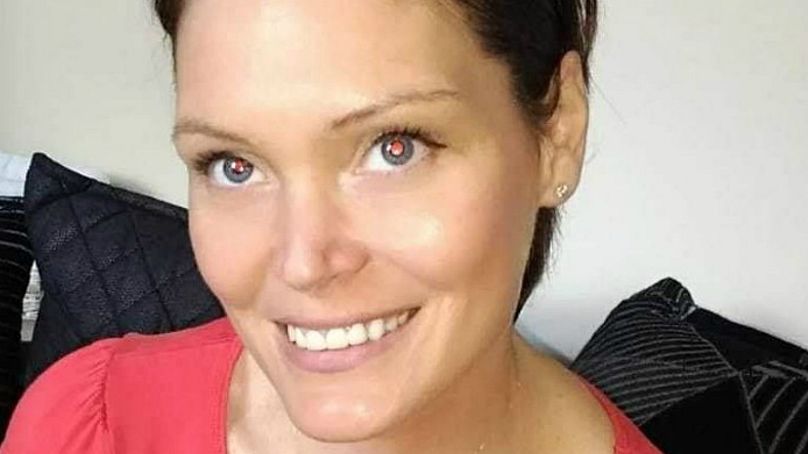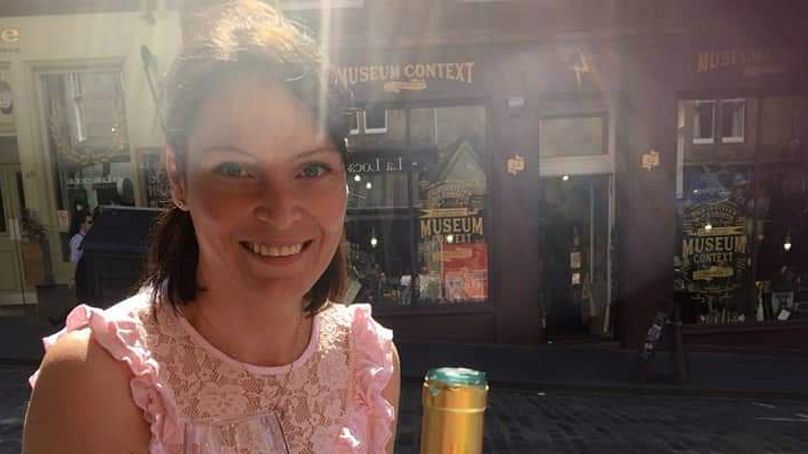A study has found the coronavirus pandemic could impact the survival rate of thousands of cancer patients in England. It comes after a British nurse went viral this month when she recalled telling three newly-diagnosed cancer patients they would not be considered for treatment due to COVID-19.
An extra 18,000 people could die from cancer in England due to the coronavirus pandemic delaying diagnoses and treatment, according to a new study.
The research, carried out by scientists at University College London and the Health Data Research Hub for Cancer, found the predicted increase could also be a result of social distancing measures, and a reluctance from patients to seek medical attention.
Like many countries, the UK's national health service (NHS) at the start of the crisis was forced to pool much of its resources into the coronavirus response, meaning other areas of the system had to make sacrifices.
There were also concerns that patients with suppressed immune systems - due to illness or from treatments such as chemotherapy - could be at a higher risk of adverse effects of the virus than others.
For those with cancer, the NHS initially said only "essential and urgent" treatments were to continue, while it set up specific "COVID-free" hubs for surgeries.
But this meant many people already diagnosed with cancer, or those needing to get tested, were unable to do so.
READ MORE:
- What are the key points of France's lockdown exit plan?
- UK 'coming to end' of phase one of COVID-19 response, says PM on first day back to work
- What does WHO says about coronavirus and smoking?
The UK is now coming through the peak of its COVID-19 epidemic, and the government has ordered this week for other medical services - including cancer care - to resume.
Data from last week showed the number of people going to emergency departments had more than halved in comparison to the same week from last year, prompting the country's health secretary to urge people to seek medical treatment if they need it.
He said: "In some cases we know that the drop is due to people not coming forward and using the NHS for critical things that matter.
"Our message is that the NHS is open. Help us to help you."
Earlier this month, Euronews spoke to Karol Sikora, an oncologist and former director of the World Health Organization's cancer programme, who said the effect of delay to cancer treatment would need to be assessed on a case-by-case basis.
He said: "With some patients, a delay might not matter too much, while for other patients it might be important.
"But if it goes on beyond a couple of months - two months at most - we have a problem."
Patients could 'die sooner than they would have'
At the start of April, the Twitter account of a British nurse went viral after she recalled telling three newly-diagnosed cancer patients they would not be considered for treatment due to COVID-19.
She said: "All will die sooner than they would have. These are the figures that are not recorded."
Her tweet later prompted replies from other nurses and cancer patients themselves who said they could relate after having similar experiences.
Vicki Meredew, from north west England, was due to undergo a round of adjuvant chemotherapy for terminal brain cancer, when she was told her treatment would be postponed.
Speaking to Euronews, the 40-year-old said she was "a little worried" about how it would eventually continue as her hospital had been "very stretched" even before the pandemic.
She added: "It was my neuro-oncology nurse who contacted me because my consultation with my oncologist (even via telephone) was cancelled.
"To be honest, at the time she said it was postponed and I'd be sent a further appointment once they'd had time to prioritise and rearrange.
"I then received an appointment for the end of the month - but having spoken to my neuro-oncology nurse again last week about getting the results of my scan, I fully expect that to be cancelled, too."
Meredrew, who was an educational and child psychologist before she took retirement for ill health, said the new round of adjuvant chemotherapy - which comes after her main treatment of chemotherapy and radiotherapy - was "unlikely to impact" her tumour.
But, she explained, her doctor thought it "worth a try" to keep the tumour stable.
"Statistically, since I first presented with seizures in June 2018, I should already be dead (glioblastoma carries a life expectancy of 12-15 months)," she said, adding: "But, fortunately, my tumour appears surprisingly stable."
She continued: "Though my followup scan, which I'm still awaiting results of, was looking into a possible cyst developing where my tumour has shrunk following radiotherapy."
When she went for her recent scan, Meredrew said the hospital was "deserted in terms of patients" but it had been "full of staff preparing for COVID-19."
She added: "From that, I'd assumed cancer patients were still considered urgent and would continue to be treated.
"I only had two cycles of chemotherapy left and my blood counts have been fine throughout, so I'd thought, perhaps, they'd send my chemotherapy (I take it orally) to my GP to avoid me going in for hospital appointments, so I could finish the course."
A few weeks after speaking to Euronews, Meredrew said she had been contacted by her oncologist who had confirmed her chemotherapy would be able to restart in May.
"The uncertainty has been unsettling but I'm really grateful for the ongoing communication from NHS professionals involved in my care," she said.
'I'm very scared'
Meanwhile, others on social media have also shared their stories of cancer treatments and tests being stopped for themselves, friends and family.
Mary Ball, from Wigan, said earlier this month her husband "won't be counted in the statistics" after he was told he couldn't have surgery, and now wasn't sure if he could have chemotherapy either.
She said: "It's all because of COVID-19 but he won't be counted in the statistics. It's not fair. He deserves a chance but everything's stopped for the virus. He should have hope."
A Derbyshire-based Twitter user called Paul said his partner had recently had "a growth spotted" on her liver.
He added: "She has been told they can't perform a biopsy to check for cancer due to COVID.
"I am very scared this could be the difference between a positive outcome and one that doesn't bear thinking about."
Neither Paul nor Mary have given any updates on their cases.
According to Professor Karol Sikora, young patients with Hodgkin's disease, leukaemia and testicular cancer should "continue [treatment] as planned", but assured for any others that he believed the pandemic would be a "temporary blip".
'I worry about the well-being of hospital staff'
Meredrew said her former role as a psychologist had now left her wondering about the long-term mental strain the COVID-19 crisis would have on healthcare staff.
She said: "Having had to work in stretched services as a psychologist, I fully appreciate that everyone is doing their best in a very under-resourced system.
"With my professional head on I really worry about the long term impact of all of this on the well-being of hospital staff.
"In my former role, I was part of a critical incident team where we'd offer psychological support to schools after traumatic incidents, and I wonder what is in place for NHS staff as this goes beyond what would normally be expected of them."













